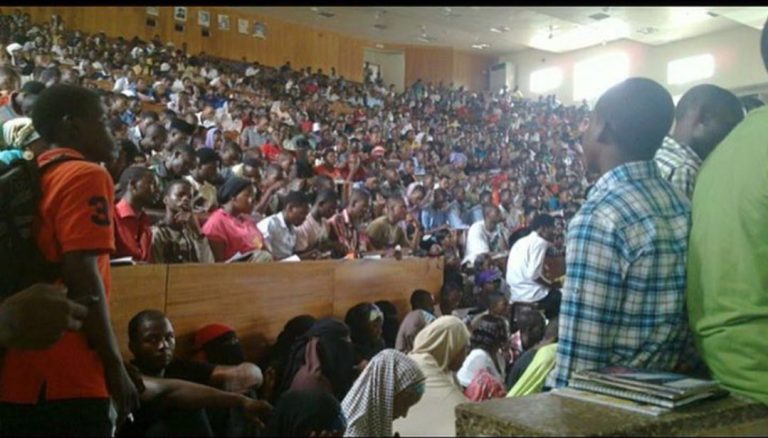The Director of, the Center for Technical, Vocational and Entrepreneurship Training, Kwara State University (KWASU), Prof. Mubaraq Sanni has urged the Nigerian Universities Commission (NUC) to review universities’ curricula to meet modern trends.
Sanni made the call on Friday in Ilorin while delivering a keynote address in a lecture titled: ”Building Resilience: Strategies for Thriving in Times of Uncertainty.”
The professor of Accounting said this was imperative because the current university curriculums are no longer relevant to practice.
“A graduate leaves school, by the time he/she gets to practice, more than 70% of what he/she learnt is not relevant again.
“That is why we are clamouring for a change in the curriculum. We should set up a committee comprising of professionals in the different fields to come up with an ideal one that will meet up with growing trends.
“Having professionals come together to develop a new curriculum for universities will help out.
”If we do not do this, the way we are going in our University setting, people will discover that when they graduate, all available works would have been taken over by Artificial Intelligence (AI),” Sanni said.
He said that most of the things he still teaches his students are no longer relevant in practical terms but need to be taught because they are in the curriculum.
Speaking on the topic of the lecture, he said it was important for Nigerians to build resilience in the face of adversity facing the people.
“As Nigerians, we are facing a lot of challenges, ranging from the fuel subsidy removal to Naira fluctuations and some others.
“But, one thing that is very fundamental now is that we must improve on our ability to build our resilience.
”Those who are successful in life are also going through one thing or the other, but they build resilience not to be deterred and they eventually get it right,” he said.
The Acting Director, of KWASU’s Institute of Professional and Continuous Education (IPCE), Dr Sunday Ojo said the lecture was a testament to the institute’s commitment to fostering a vibrant intellectual community and promoting lifelong learning.
Ojo said the Institute had always been dedicated to redefining learning, bridging gaps in education, and providing accessible, high-quality educational opportunities to all.
He said the topic could not have come at a better time than now when uncertainty stares us in the face in all spheres of human endeavours.
“It is designed to bring together thoughts of leaders, industry experts, academics, Alumni, and students to discuss pressing issues, share insights, and explore innovative ideas that will shape the future of education and professional development.
“It is a platform for exchanging knowledge, inspiring minds, and driving change,” Ojo said.
KWASU Acting Vice-Chancellor, Prof. Jimoh Shaykh-Lukman, said the topic was timely and relevant to the challenges Nigeria faces currently.
”It is common knowledge that resilience is crucial in dealing with the complexities of modern life.
“Being resilient in the face of socio-economic challenges is essential and we believe education plays a key role in building resilience.
“We equip our students and staff with the skills and mindset needed to face challenges and emerge stronger; through innovative programmes and support systems, we foster resilience and adaptability.
“Today’s discussions present an opportunity to exchange ideas and discover solutions. Let’s leverage this platform to foster positive change,” he said.
The lecture was the maiden edition of the Annual Lecture Series organised by KWASU’s IPCE.
NAN


